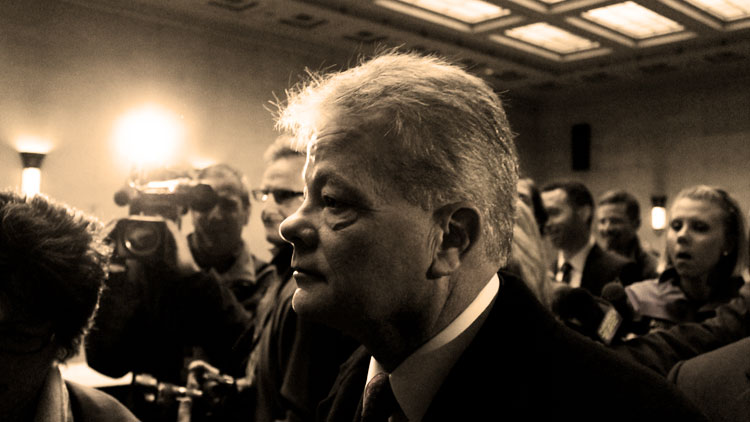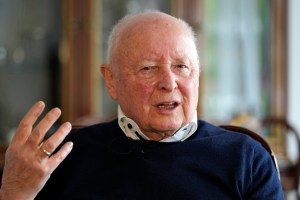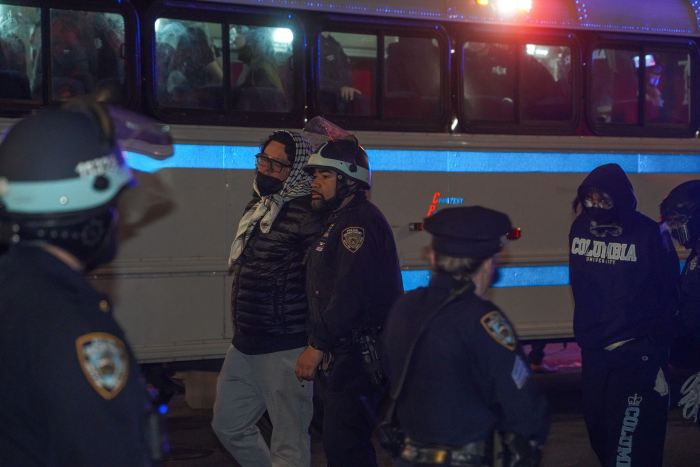Prosecutors defended their conviction of an ex-deputy Nassau County police commissioner who appealed a jury’s verdict that he was guilty of covering up a burglary committed by a police nonprofit donor’s son.
Attorneys for William Flanagan argued in a 93-page appeal that Nassau prosecutors tainted the trial with what the ex-commander’s counselors described as a prejudicial closing argument, insufficient evidence to support the conviction and prosecutorial misconduct in the grand jury’s indictment. But, his lawyer did not show up to make that case in person during oral arguments Tuesday at the New York State Supreme Court Appellate Division, Second Judicial Department in Brooklyn.
“A defendant is entitled to a fair trial,” Yael Levy, the deputy chief of the Appeals Bureau for Nassau County District Attorney Kathleen Rice’s office, told the panel of four judges while quoting the Sixth Amendment. “A defendant is not entitled to a perfect trial.”
Flanagan was convicted in February 2013 of three misdemeanors—conspiracy and two counts of official misconduct—but was acquitted of a felony charge of receiving reward for official misconduct following the month-long trial. Judge Mark Cohen—a Suffolk judge brought in after two Nassau judges recused themselves—sentenced Flanagan to 60 days in jail, but execution of that term was stayed pending the appeal. Prosecutors said that Flanagan helped quash the case against Zachary Parker, who stole thousands of dollars worth of electronics from his alma mater, John F. Kennedy High School, in Bellmore shortly before he graduated five years ago while he was an intern for the Nassau police Ambulance Bureau.
“It seems to me…that the prosecution really focused in on the Parker family and made it about the quote-unquote child of privilege,” Judge Hector LaSalle told Levy while referring to Flanagan’s friend and the burglar’s father, Gary Parker, who was volunteering for the nonprofit Nassau County Police Department Foundation when he asked for Flanagan’s help with his son’s case. “I want to make sure Mr. Flanagan wasn’t convicted because of an overarching theory against Mr. Parker.”
Levy argued that influence wielded by Parker, who was named in court as an unindicted co-conspirator, had to be detailed at trial in order to prove the motive behind the conspiracy.
The judges also questioned her why prosecutors had Zachary’s friend testify that a New York State Trooper let Zachary go when Zachary flashed a Nassau police foundation badge after the trooper stopped Zachary for speeding 100 miles per hour. Although that didn’t show the Parker’s influence with Nassau police because it was a difference agency, Levy said Flanagan’s defense attorneys had gotten email evidence thrown out that she said showed the elder Parker brokered dinners between Nassau and state police—evidence that she argued would have made the connection.
“It would have been more fleshed out had prosecutors been able to connect the dots with emails,” Levy told the panel, adding that the testimony was included “in good faith.”
As far as the closing arguments, which Flanagan’s attorneys argued were improperly meant to inflame the jury’s emotions to coax a conviction, they cited prosecutors’ mention of what the “taxpayers” deserve. Judge Sylvia Hinds-Radix called the reference “over the top.” Levy countered that it was relevant because “this was a public corruption case…this was a public official.”
Flanagan’s attorneys also accused prosecutors of improperly allowing hearsay testimony before the grand jury, but specifics were redacted in court documents because grand jury proceedings are shielded from public view. In her reply, Levy maintained that the issue was irrelevant.
Two other ex-police commanders—John Hunter, the retired Deputy Chief of Patrol and Det. Sgt. Alan Sharpe—both pleaded guilty this year to misconduct and were sentenced to probation in connection with the case, which stemmed from a Press expose into police favoritism for the nonprofit’s donors. Zachary Parker pleaded guilty to burglary and was sentenced to prison after violating his probation. He has since been released.
Although it is unclear exactly when the judges are expected to issue a ruling on the appeal, a decision can take anywhere from three weeks to six months, sources say.
Neither a spokesman for Rice nor Flanagan’s attorney, Donna Aldea, head of the Appellate Practice Group for Garden City-based Barket Marion Epstein & Kearon, LLP, would comment while the decision is pending.


























